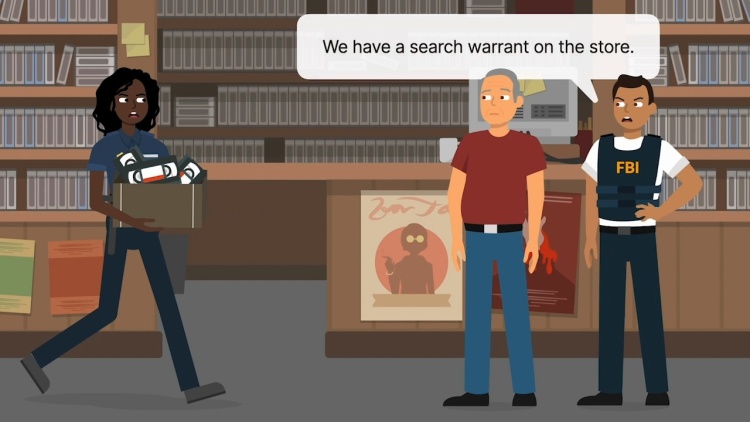United States v. Moran
United States District Court for the District of Nebraska
757 F.Supp. 1046 (1991)
- Written by Kelsey Libby, JD
Facts
Dennis Moran (defendant) worked for over 22 years as a police officer in Omaha, Nebraska, and also owned a small movie-rental operation. On April 14, 1989, Federal Bureau of Investigation (FBI) agents appeared at the store with a warrant and seized six video cassettes that appeared to be unauthorized copies of copyrighted movies. Moran purchased valid copyrighted copies of all six, and he reproduced at least one of the movies without authorization and rented it out. Moran testified that he insured copyrighted videos that he had validly purchased by duplicating them and renting the duplicates, while holding the originals back to protect against damage. Moran testified that he believed this practice was legal based on conversations with others in the business and trade publications. The evidence also indicated that Moran made only one copy of each original and did not rent out both. Moran was charged with willful copyright infringement under 17 U.S.C. § 506(a). The prosecution (plaintiff) argued that the word “willfully” meant that the defendant need only intend to do the act of copying, but Moran argued that he must have had the specific intent to violate a known legal duty. The parties consented to a bench trial.
Rule of Law
Issue
Holding and Reasoning (Kopf, J.)
What to do next…
Here's why 911,000 law students have relied on our case briefs:
- Written by law professors and practitioners, not other law students. 47,100 briefs, keyed to 997 casebooks. Top-notch customer support.
- The right amount of information, includes the facts, issues, rule of law, holding and reasoning, and any concurrences and dissents.
- Access in your classes, works on your mobile and tablet. Massive library of related video lessons and high quality multiple-choice questions.
- Easy to use, uniform format for every case brief. Written in plain English, not in legalese. Our briefs summarize and simplify; they don’t just repeat the court’s language.







